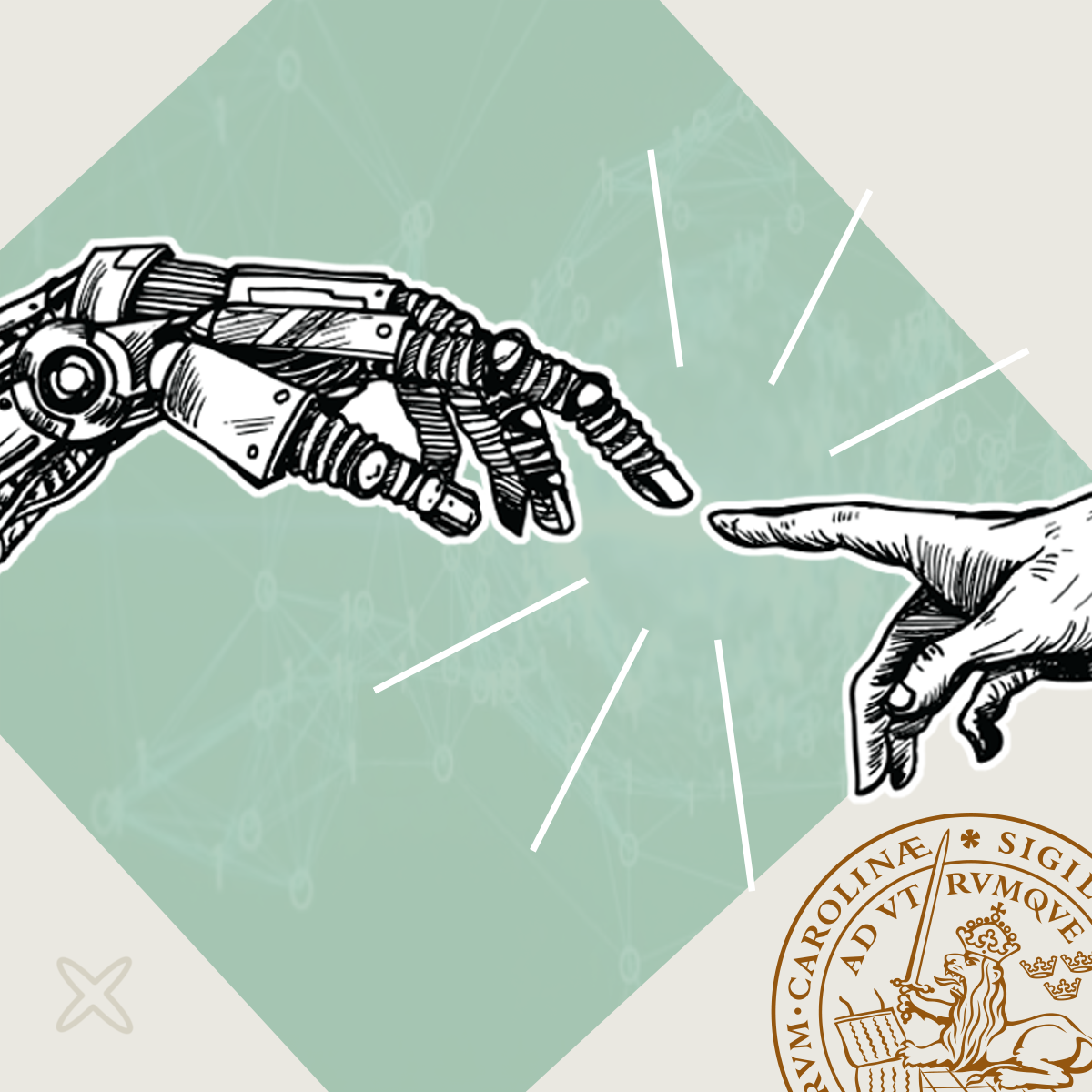Back to Courses









Social Sciences Courses - Page 11
Showing results 101-110 of 672

Operational Research for Humanitarians
Evidence is central to good decision-making both in the humanitarian sector and beyond. Every day, a vast amount of evidence is generated that is relevant to humanitarian actors, much of it through research by academics and practitioners. This evidence can be incredibly valuable. It can help us better understand a situation and make humanitarian action more effective and accountable. The difficulty comes with understanding what evidence is relevant to our circumstances, where to find it, and how to assess its quality.
This course will provide you with the fundamental knowledge and skills to answer these questions and help you better engage with research. It has been developed with you - a humanitarian professional or junior researcher - in mind. The course moves through the core research concepts one-at-a-time and does not require any prior knowledge or experience. We encourage all of you to plan your own learning journey by using this MOOC in a way that is most useful to you.
Content highlights:
• How can research be used for humanitarian practice?
• What are the most appropriate research methods?
• How can I judge the quality of the evidence and whether it is applicable to the context I work in?
• How can populations in a situation of vulnerability be protected during a study?
This course - co-developed in a partnership between academic and humanitarian institutions - is strongly positioned to give you the needed skills and knowledge to build a bridge between research and practice.
We hope that this course will change your perspectives and improve your knowledge and, ultimately, make humanitarian responses more evidence-based. Enjoy!

AI, Business & the Future of Work
This course from Lunds university will help you understand and use AI so that you can transform your organisation to be more efficient, more sustainable and thus innovative.
The lives of people all over the world are increasingly enhanced and shaped by artificial intelligence. To organisations there are tremendous opportunities, but also risks, so where do you start to plan for AI, business and the future of work?
Whether you are in the public or private sector, in a large organisation or a small shop, AI has a growing impact on your business. Most organisations don’t have a strategy in place for how to make AI work for them.
The teacher, Anamaria Dutceac Segesten, will guide you through the topics with short lectures, interviews and interactive exercises meant to get you thinking about your own context.
12 industry professionals, AI experts and thought leaders from different industries have been interviewed and will complement the short lectures to give you a broad overview of perspectives on the topics. You will meet:
Kerstin Enflo
Professor in Economic History
Lund University
Dr. Irene Ek
Founder
Digital Institute
Samuel Engblom
Policy Director
The Swedish Confederation of Professional Employees
Pelle Kimvall
Lead Solution Ideator
AFRY X
Joakim Wernberg
Research Director, Digitalisation and Tech Policy
Swedish Entrepreneurship Forum
Marcus Henriksson
Empathic Leader of AI & Automation and Digital Business Development
Empathic
Johan Grundström Eriksson
Board Advisor, Innovation Management & Corporate Governance
Founder & Chairman, aiRikr Innovation AB
Jakob Svensson
Professor in Media and Communication Studies
Malmö University
Ulrik Franke
Senior Researcher
RISE Research Institutes of Sweden
Björn Lorentzon
Nordic Growth Lead
Sympa
Anna Felländer
Founder
AI Sustainability Center
Prof. Fredrik Heintz
Associate Professor of Computer Science
Linköping University

Terrorism and Counterterrorism: Comparing Theory and Practice
Delve into the research behind terrorism as you unpack the assumptions and impacts of both terrorism and counterterrorism.
Terrorism has arguably been one of the defining factors of our age. It frequently makes headlines, threatening or attacking governments, private businesses, and ordinary citizens. In many parts of the world, it has been one of the most important threats to peace, security, and stability – but what does this mean exactly?
On this six-week course from Leiden University, you’ll explore the essence of terrorism and discover why it is so difficult to define. Unpacking its history and the theory of the waves of terrorism, you’ll analyse both the theoretical approaches and practical applications of terrorism and counterterrorism in the real world.
There are many assumptions that cloud the subjects of terrorism and counterterrorism. These myths are often created and intensified by individual bias, the government, and the media. On this course, you’ll discover different assumptions about terrorist identities and motivations, as well as the efficiencies of various counterterrorism efforts. You’ll then compare this with academic research to investigate the truth behind these assumptions.
In your exploration of the impact of terrorism, you’ll delve into the culture of fear created by terrorism, as well as the success of counterterrorism policies to limit and manage its impact on society. In the final stage of this course, you’ll reflect on trends and developments in terrorism and counterterrorism. You’ll assess current academic research as well as what could be studied in the future to help.

Privacy in Europe
After having followed Privacy in the Western world you have become acquainted with the overall global legal system and the origins of privacy as a concept as well as privacy as a (human) right. This course deals with the European legal system to protect privacy. European privacy protection is based upon human rights treaties, both on a European level as well global level such as, e.g. the UN Declaration on Human Rights. This course outlines and deals with these human rights treaties as well as with the specific rules and regulations that govern day to day privacy protection in Europe.
The course deals with how the European cooperation came into being after the devastating effects of World War II. Economic cooperation was deemed necessary to prevent another war. From economic cooperation other issues became part of the negotiations, and to this day more and more policy fields have become part of the European cooperation. Dealing with and having respect for different human rights is paramount in this cooperation. And privacy protection and regulation has become an increasingly important subject that has attracted a lot of global attention.
The course deals with the different legal elements that have played an important role into grabbing in legal terms the notion of privacy and how to legally protect it. The rules that enable the exchange of personal data between the USA and Europe is being dealt with. It also deals with the constituting legal elements that have become part of the General Data Protection Regulation (GDPR).
After successful completion of the course you will have sufficient baggage to know about the important legal elements and historical background on the coming into being of European privacy protection. I wish you a lot of success with following the course.

International Security Management
In this MOOC you will learn about the colorful and diverse international security landscape, and gain insights into challenging topics including Open Source Intelligence, serious organised crime and illicit trade. You will also meet stakeholders from different sectors and backgrounds. We recorded our videos at different locations in Europe to also give you an insight into the original environment of our contributing experts. You will realize that the style and focus of the various presentations will differ from one week to the other. We feel that this is a big asset! And yes, we also have men in suits and uniforms...

Learn to Teach Java: Writing Classes and Arrays
Learn to program using Class design and 1-D Arrays in Java, and prepare to teach others using the free, online interactive CS Awesome textbook. In this course for teachers we'll guide you both in learning Java concepts and skills but also in how to effectively teach those to your students.
This course will support you in teaching the Advanced Placement Computer Science A course or a similar introductory university-level programming course. We'll cover the critical Java concepts of class design and 1-dimensional arrays, as covered in the APCS A Units 5 and 6. Each topic will begin by relating Java to block-based programming languages and then provide video overviews of CS Awesome content along with additional materials to supplement learning for your students.
You'll engage with additional materials to support your teaching including "deep dive" classroom discussion questions, assessment overviews, code tracing and problem solving skills for your students, including preparation for free response coding questions.

Term-Structure and Credit Derivatives
This course will focus on capturing the evolution of interest rates and providing deep insight into credit derivatives. In the first module we discuss the term structure lattice models and cash account, and then analyze fixed income derivatives, such as Options, Futures, Caplets and Floorlets, Swaps and Swaptions. In the second module, we will examine model calibration in the context of fixed income securities and extend it to other asset classes and instruments. Learners will operate model calibration using Excel and apply it to price a payer swaption in a Black-Derman-Toy (BDT) model. The third module introduces credit derivatives and subsequently focuses on modeling and pricing the Credit Default Swaps. In the fourth module, learners would be introduced to the concept of securitization, specifically asset backed securities(ABS). The discussion progresses to Mortgage Backed Securities(MBS) and the associated mortgage mathematics. The final module delves into introducing and pricing Collateralized Mortgage Obligations(CMOs).

The Challenges of Modern Caregiving
Care workers are occasionally lauded as “heroes” of society, but the special challenges they face are not fully understood. This course examines how the organization of care has changed in modern times and the dilemmas those developments pose to helping professionals. Among the questions it engages are: How does the meaning of care change when it is performed outside the family? Do bureaucratic systems discourage individuals from taking responsibility for others’ suffering? How do care professionals manage their emotions and those of their clients? Can and should care work be rehumanized? In addition to helping learners develop informed responses to these pressing issues, The Challenges of Modern Caregiving will give students the chance to learn a method that identifies gaps in existing care systems.

Introduction to Topic Modelling in R
By the end of this project, you will know how to load and pre-process a data set of text documents by converting the data set into a document feature matrix and reducing it’s dimensionality. You will also know how to run an unsupervised machine learning LDA topic model (Latent Dirichlet Allocation). You will know how to plot the change in topics over time as well as explore the distribution of topic probability in each document.

Data science perspectives on pandemic management
The COVID-19 pandemic is one of the first world-wide scenarios where data made a difference in capturing and analyzing the diffusion and impact of the disease.
We offer an introductory course for decision makers, policy makers, public bodies, NGOs, and private organizations about methods, tools, and experiences on the use of data for managing current and future pandemic scenarios.
This course describes modern methods for data-driven policy making in the context of pandemics. Discussed methods include policy making, innovation, and technology governance; data collection from citizens, crowdsourcing, gamification, and game with a purpose (GWAP); crowd monitoring and sensing; mobility and traffic analysis; disinformation and fake news impacts; and economical and financial impacts and sustainability models. Methods, tools, and analyses are presented to demonstrate how data can help in designing better solutions to pandemics and world-wide critical events.
In this course you will discover the role of policy making and technology governance for managing pandemics.
You will learn about methods like crowdsourcing, gamification, sensing of crowds and built environments, and contact tracing for understanding the dynamics of the pandemic.
You will understand the risk of disinformation and its impact on people perception and decisions.
The course also covers the financial models that describe the pandemic monetary impact on individuals and organizations, as well as the financial sustainability models that can be defined.
Thanks to this course you will get a deeper understanding of motivations, perceptions, choices, and actions of individuals in a pandemic setting, and you will be able to start defining appropriate mitigation actions.
This course was developed by a set of European research and education institutions as part of the research project 'Pan-European Response to the Impacts of the COVID-19 and future Pandemics and Epidemics' (PERISCOPE, https://www.periscopeproject.eu/). Funded by the European Commission Research Funding programme Horizon 2020 under the Grant Agreement number 101016233, PERISCOPE investigates the broad socio-economic and behavioural impacts of the COVID-19 pandemic, to make Europe more resilient and prepared for future large-scale risks.
Popular Internships and Jobs by Categories
Browse
© 2024 BoostGrad | All rights reserved


